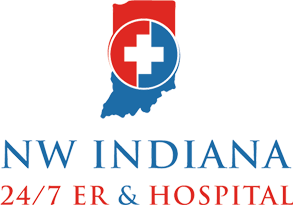You finally made it safely inside your home from the harsh winter weather. Your thermostat may need a little adjustment as you prepare to get cozy and relax in the warm indoors.
Everything seems perfect, but is your home really safe?
Most people feel safe and prepared in their homes as they know the dangers of fires and explosions from appliances that produce carbon monoxide gas. However, when everything seems to be working perfectly with your air conditioning system, there may still be a silent danger lurking around the home beyond fires and explosions.
According to the Center for Disease Control and Prevention, the in-home dangers of carbon monoxide poisoning send around 20,000 people to the emergency room each year. Discover how to protect you and your loved ones against the odorless, colorless poison present in many homes.
What is Carbon Monoxide poisoning?
It’s important to note that if your heating system is running properly, you and your loved ones are safe! The issue occurs when a problem goes unnoticed because everything seems to be working fine. Carbon monoxide poisoning is known as a “silent killer” because it does not produce an odor, color, or taste in warning before it strikes.
Carbon Monoxide poisoning is an extremely dangerous and deadly gas to come in contact with that makes it difficult for your blood to transport oxygen, leaving the body deficient in the needed element.
Common Symptoms of Carbon Monoxide Poisoning
- Dizziness
- Headache
- Disorientation
- Nausea
Due to the similarities to other common illnesses, many people ignore the symptoms of carbon monoxide poisoning until it is too late to seek medical attention. It’s also easy to miss signs of poisoning when you are asleep.
How to Avoid Carbon Monoxide Poisoning From Your Home Heating System
- Schedule Routine Maintenance Checkups: There is great value in getting your heating systems checked routinely for carbon monoxide issues and equipment malfunctions, especially before heater season. Also, professionals can check for blockages that can stop an air conditioning system from working properly.
- Inspect Your Chimney: Any blockage in the chimney or pipes can be damaging. Your chimney must be checked for bird nests, soot, or anything in the way of proper function.
- Install Carbon Monoxide Detectors: Carbon Monoxide detectors add a level of protection, alerting those in the home when there is a sense of carbon monoxide in the air. When installed properly, they can be the key to saving lives, especially when there is no warning, or you may be sleeping.
24/7 Emergency Care
During this winter season, NW Indiana ER & Hospital has you covered for any medical emergency! Our expert emergency room physicians quickly alleviate any of your symptoms and provide accurate treatment for long-term success. For 24/7 adult and pediatric emergency care services – visit us today!
Disclaimer: As a service to our readers, NW Indiana ER & Hospital and Nutex Health state no content on this site, regardless of date, should ever be used as a substitute for direct medical advice from



0 Comments